Презентація: "The High Middle Ages. Part 1"
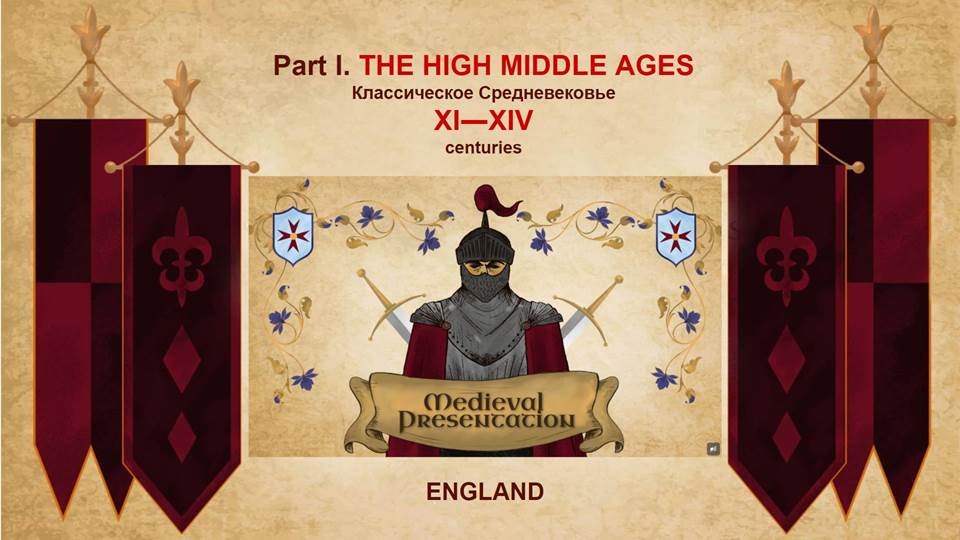
The Periodof Three Languages in England
![]()
|
FRENCH The language of the kings and barons of the Normans |
|
|
LATINENGLISH
The language of
The language ofpeasants and clergymentownspeople of the Anglo-Saxons
The Peasants' Struggle
Against the Norman Conquerors
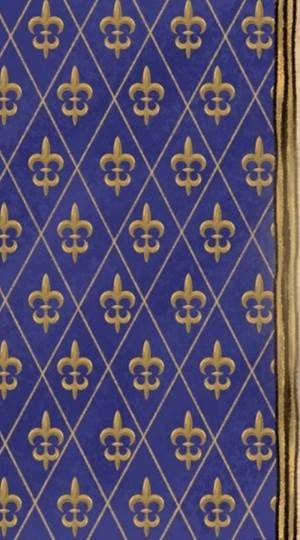 Life under the harsh and cruel Norman kings and barons was always full of dangers for the peasant. The Normans treated England as a conquered country. Especially in the North, hundreds of peasant farms were ruined, most of the homeless miserable people died of starvation. Again and again in the Domesday Book (KHMra CTpaUJHOro Cyaa) beside the descriptions of Yorkshire villages the words "It is waste" are written. Hundreds of peasant huts were pulled down to make hunting grounds for the king and his barons. The peasants had nowhere to go and no land to till, but the Conqueror and his barons cared little for the sufferings of the poor when their own pleasure was concerned.
Life under the harsh and cruel Norman kings and barons was always full of dangers for the peasant. The Normans treated England as a conquered country. Especially in the North, hundreds of peasant farms were ruined, most of the homeless miserable people died of starvation. Again and again in the Domesday Book (KHMra CTpaUJHOro Cyaa) beside the descriptions of Yorkshire villages the words "It is waste" are written. Hundreds of peasant huts were pulled down to make hunting grounds for the king and his barons. The peasants had nowhere to go and no land to till, but the Conqueror and his barons cared little for the sufferings of the poor when their own pleasure was concerned.
For the ruined peasant families hunting was often the only way to keep themselves alive. But the cruel Forest Laws forbade hunting in the forests. The punishments for breaking the Forests Laws were terrible. A man who killed a deer in the forest would have his hand cut off, or he would be blinded, or even put to death.
The Norman priests whom the peasants did not understand because they spoke Norman-French or Latin, made them pay more to the Church. The royal taxes grew too.

 The peasants, as a rule, performed their duties which were fixed by custom and the powerful lords managed to keep them in obedience. One third of the lords were clergymen and they could rely on the religious peasants to obey them. But when the feudal lords broke the old customs and increased their duties the peasants would resist stubbornly. The feudal courts punished the disobedient peasants severely and forced them to perform their duties. The bravest peasants ran away from their manor-lords. They lived in the forests or mountainous regions, and they fearlessly hunted in the royal forests. Very often a tyrant steward would be found murdered in the forest. William the Conqueror issued a law which said that whenever a Norman was found dead in any district, the people of that district were to find the murderer and hand him over to justice within a week. When they did not do so all the men in the district were fined heavily. But neither the king's severe laws, nor the cruel feudal courts could stop the struggle of the peasants against their exploiters.
The peasants, as a rule, performed their duties which were fixed by custom and the powerful lords managed to keep them in obedience. One third of the lords were clergymen and they could rely on the religious peasants to obey them. But when the feudal lords broke the old customs and increased their duties the peasants would resist stubbornly. The feudal courts punished the disobedient peasants severely and forced them to perform their duties. The bravest peasants ran away from their manor-lords. They lived in the forests or mountainous regions, and they fearlessly hunted in the royal forests. Very often a tyrant steward would be found murdered in the forest. William the Conqueror issued a law which said that whenever a Norman was found dead in any district, the people of that district were to find the murderer and hand him over to justice within a week. When they did not do so all the men in the district were fined heavily. But neither the king's severe laws, nor the cruel feudal courts could stop the struggle of the peasants against their exploiters.
Many popular ballads express the peasants' hatred for the exploiters and their determinations to fight against the lords and take revenge on them for all the sufferings and humiliations of the poor. The most popular and favourite hero of the English ballads was Robin Hood.
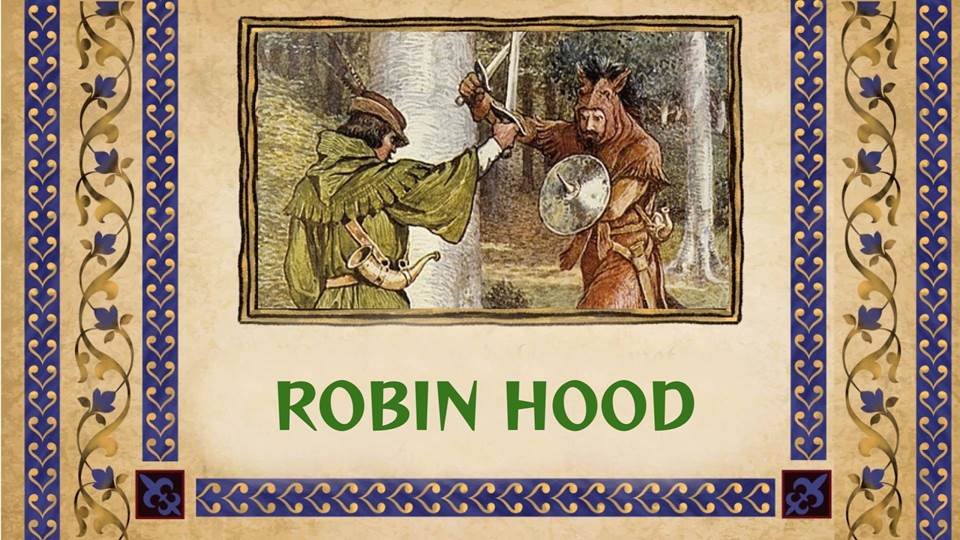
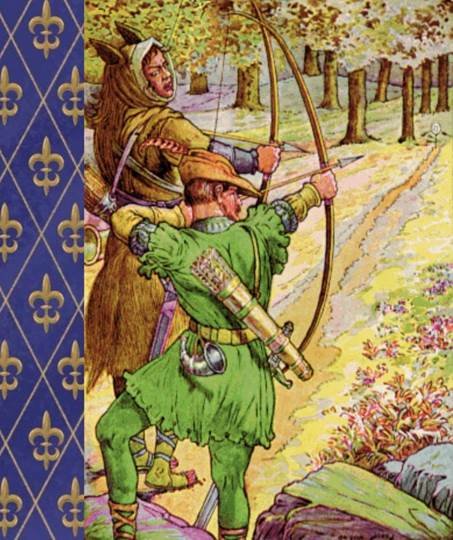 On holidays the people sang or recited ballads about his life and adventures. The ballads describe Robin Hood as a strong, brave and skilful archer. (The bow was a traditional weapon of the English peasants in the Middle Ages.) Together with his companions who were also staunch and courageous men Robin Hood hid in the woods. They fought against the bishops and monks, against the sheriffs and the cruel barons who oppressed the people. He and his men swore the oath to take revenge on those who oppressed them. This was the oath:
On holidays the people sang or recited ballads about his life and adventures. The ballads describe Robin Hood as a strong, brave and skilful archer. (The bow was a traditional weapon of the English peasants in the Middle Ages.) Together with his companions who were also staunch and courageous men Robin Hood hid in the woods. They fought against the bishops and monks, against the sheriffs and the cruel barons who oppressed the people. He and his men swore the oath to take revenge on those who oppressed them. This was the oath:
"I swear
To help the weak andfight the strong,
To take from the rich and give to the poor. "
Robin Hood was always just to the poor people and helped them in their troubles. Like all the peasants in the Middle Ages Robin Hood believed in "the kind king" but at the same time he was a sworn enemy of the Norman oppressors who treated the Anglo-Saxons cruelly and who deprived them of land and freedom.
The "Robin Hoods" and their struggle continued throughout the Middle Ages
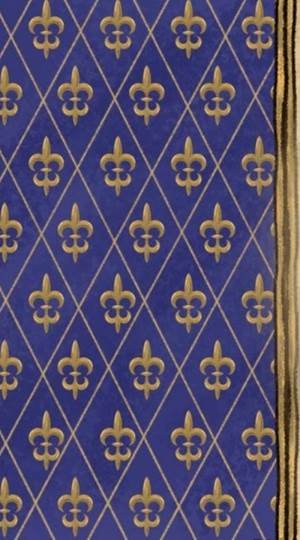 The English peasants believed that Robin Hood was a free Saxon and he actually lived in the 12th century when the country was ruled by the Norman conquerors. The name of Robin Hood encouraged the English peasants in their struggle against the cruel landlords, the king's officials, and against unjust royal laws. Robin Hood was their hero, a real hero, although history does not have exact information about him.
The English peasants believed that Robin Hood was a free Saxon and he actually lived in the 12th century when the country was ruled by the Norman conquerors. The name of Robin Hood encouraged the English peasants in their struggle against the cruel landlords, the king's officials, and against unjust royal laws. Robin Hood was their hero, a real hero, although history does not have exact information about him.
In fact, there were many "Robin Hoods" in the 12th century in England. It was not easy for the peasants to give up his land-holding, cattle, hut and implements. But the braver peasants like Robin Hood and his men ran away from their native villages. The runaway peasants armed themselves with axes, forks, flails, scythes and in big crowds they attacked the monasteries, set fire to the manor houses and barns, killed the abbots and manor who were particularly greedy and cruel. Sometimes such armed peasant rebellions spread whole regions.
The High Middle Ages (XI—XIV). Part I Questions for discussion:

![]() In what way did the English village after the Norman Conquest differ from that in Anglo-Saxons times?
In what way did the English village after the Norman Conquest differ from that in Anglo-Saxons times?
2. What was the cause of the constant struggle between the feudal lords and the serfs?
3. What form did the peasants' struggle against the exploiters take?
4. How do English ballads characterise Robin Hood? Why can he be called a real hero of the English people?


про публікацію авторської розробки
Додати розробку
